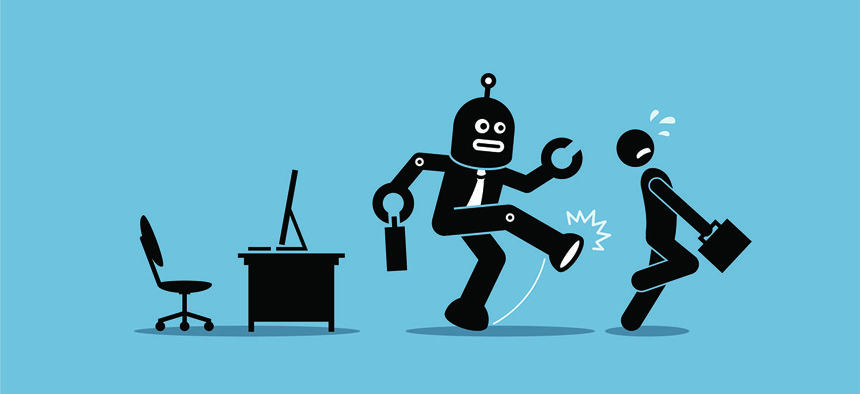Robots Don’t Have to Take Over Jobs in Order to Be a Problem for Workers

Leremy/Shutterstock.com
“I think full automation is a big red herring."
The argument that humans will keep their jobs even as machines become more advanced is generally an optimistic one—except when it’s being made by Albert Wegner.
During a panel discussion hosted by New York University’s Stern School of Business and the McKinsey Global Institute last week, Wegner, a managing partner at Union Square Ventures, argued humans will continue to have a competitive advantage over robots and algorithms… because they’ll be so poorly paid.
“I think full automation is a big red herring,” he said. “What has been happening to a lot of jobs is that the qualifications required to carry out the job have been pushed down [because of new technology that automates part, but not all, of their work].”
Wegner cited London cab drivers as an example. Traditionally, drivers have had to pass a comprehensive test—dubbed “The Knowledge,” it involves memorizing 25,000 London streets—in order to receive a license. Now, “all you need is a little device that you punch in your coordinates–actually, the customer has already punched them in for you–and the thing just tells you where to turn.”
In other words, apps like Uber haven’t replaced taxi drivers, but rather (as other technologies have done with other occupations throughout history) they’ve made it possible for less-skilled workers to do the job. At least until driverless cars take over.
This type of transition has played out multiple times in the past (which, to be fair, some argue is irrelevant). Technology creates new, skilled jobs—such as programmers who create apps like Uber—even as it deskills others, like taxi drivers. For those deskilled jobs, or at least some of them, wages fall.
Pointing to stalled wage growth in the U.S., Wegner argued the same could happen, or has already happened, with many current jobs. If a human worker needs fewer skills because a machine does part of her work, then she’ll most likely be cheaper to hire–maybe even cheaper than the cost of technology that could replace her.
“You don’t actually need to go to full automation because you have cheap human labor to complement the partial automation,” Wegner said. “I think the overall social impact of this will be playing itself out much faster than the full automation timeline would lead you to believe.”
In other words: Don’t worry about machines replacing humans. Worry about machines replacing the skilled portions of human jobs, and leaving the cheap drudge work behind.
NEXT STORY: How Should We Treat Our Military Robots?





